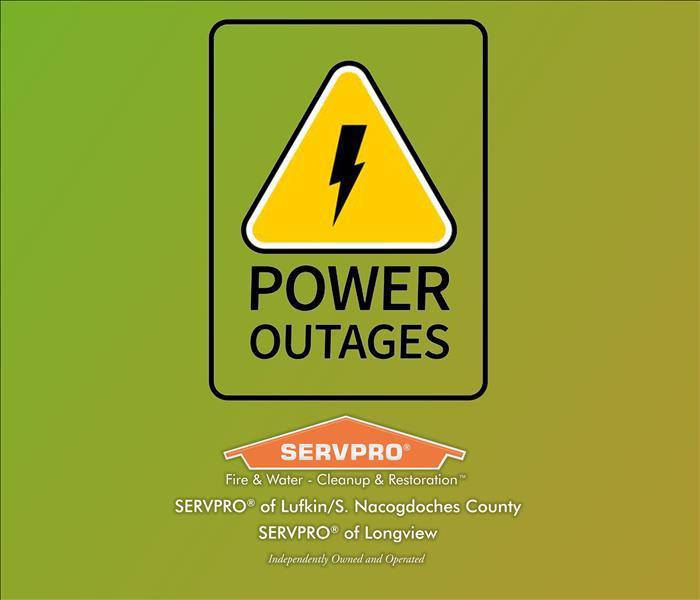What to do in a Power Outage
6/8/2020 (Permalink)
We’re more vulnerable to power outages this time of year because of new growth and leaves that are still on the trees, which can pull branches down. Ready, a national public service advertising campaign, gives us these tips to follow before, during, and after a power outage.
Before
- Build or restock your emergency preparedness kit, including a flashlight, batteries, cash, and first aid supplies.
- Make sure you have alternative charging methods for your phone or any device that requires power.
- Charge cell phones and any battery-powered devices
- Know where the manual release lever of your electric garage door opener is located and how to operate it.
- Purchase ice or freeze water-filled plastic containers to help keep food cold during a temporary power outage.
- Keep your car’s gas tank full. Gas stations rely on electricity to power their pumps. If you use your car to re-charge devices, do NOT keep the car running in a garage, partially enclosed space, or close to a home, this can lead to carbon monoxide poisoning.
- Learn about the emergency plans that have been established in your area by visiting your state’s or local website so you can locate the closest cooling and warming shelters.
- If you rely on anything that is battery-operated or power dependent like a medical device, determine a back-up plan.
During
- Only use flashlights for emergency lighting, candles can cause fires.
- Keep refrigerator and freezer doors closed. Most food requiring refrigeration can be kept safely in a closed refrigerator for several hours. An unopened refrigerator will keep food cold for about 4 hours. A full freezer will keep the temperature for about 48 hours.
- Put on layers of warm clothing if it is cold outside. Never burn charcoal for heating or cooking indoors. Never use your oven as a source of heat. If the power may be out for a prolonged period, plan to go to another location that has heat to keep warm.
- Turn off or disconnect appliances and other equipment in case of a momentary power “surge” that can damage computers and other devices. Consider adding surge protectors.
- If you are considering purchasing a generator for your home, consult an electrician or engineer before purchasing and installing.
- Only use generators away from your home and NEVER run a generator inside a home or garage, or connect it to your home’s electrical system.
After
- Throw away any food that has been exposed to temperatures 40 degrees Fahrenheit (4 degrees Celsius) for 2 hours or more or that has an unusual odor, color, or texture. When in doubt, throw it out!
- If food in the freezer is colder than 40 degrees Fahrenheit and has ice crystals on it, you can refreeze it
- Contact your doctor if you’re concerned about medications having spoiled.
- Restock your emergency kit with fresh batteries, canned foods, and other supplies.
The main priority this season is safety. For any water or fire damage needs, feel free to call us at 936-554-0404.






 24/7 Emergency Service
24/7 Emergency Service